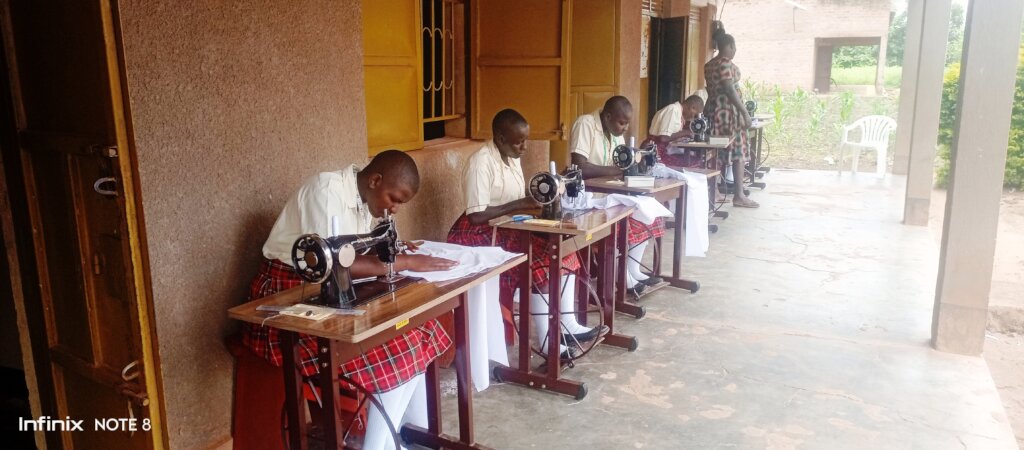By George Obua | Project Leader
Empower them with sewing machine: Practice
At Kole Intellectual Forum, unlike other training Institution is one such organization that believes in at the phrase that: "Practice makes perfect"; a sentence deliver to mean consistent, repeated effort leads to mastery or high skill in a task, while at the same time, encouraging perseverance by showing that improvement comes from doing something often, whether it's sports, music, writing, or any form of action like those done at the vocational Institutions. On the other hand, the phrase is meant to say that: the action is frequently taken or is just to say, if the work is focused at, it can give one at path way to become very good at it.
That is when we can report to you our supporters that: with your gifts that you always donate to us at Kole Intellectual Forum, part of it, is used to procure sewing machines and given to every child to make her concentrate or practice her all the time she is at the classroom.
Hence, at the end of the course, she would have learnt a lot; and at the end of her course she takes the machine as part of her start up capital.
By George Obua | Project Leader
By George Obua | Project Leader
Project reports on GlobalGiving are posted directly to globalgiving.org by Project Leaders as they are completed, generally every 3-4 months. To protect the integrity of these documents, GlobalGiving does not alter them; therefore you may find some language or formatting issues.
If you donate to this project or have donated to this project, you can receive an email when this project posts a report. You can also subscribe for reports without donating.
Support this important cause by creating a personalized fundraising page.
Start a Fundraiser